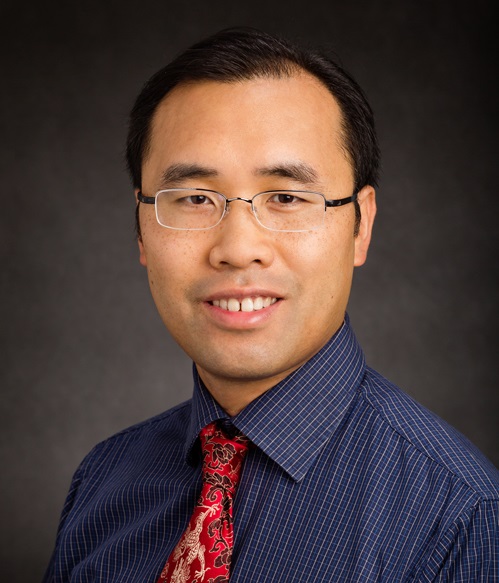
Abstract Complex systems in different domains contain significant amount of software. Several studies have established that a large fraction of system outages are due to software faults. Traditional methods of fault avoidance, fault removal based on extensive testing/debugging, and fault tolerance based on design/data diversity are found inadequate to ensure high software dependability. The key challenge then is how to provide highly dependable software. We discuss a viewpoint of fault tolerance of software-based systems to ensure high dependability. We classify software faults into Bohrbugs and Mandelbugs, and identify aging-related bugs as a subtype of the latter. Traditional methods have been designed to deal with Bohrbugs. The key challenge then is to develop mitigation methods for Mandelbugs in general and aging-related bugs in particular. We submit that mitigation methods for Mandelbugs utilize environmental diversity. Retry operation, restart application, failover to an identical replica (hot, warm or cold) and reboot the OS are reactive recovery techniques applied after the occurrence of a failure. They are examples of techniques that rely on environmental diversity. For software aging related bugs, it is also possible to utilize a proactive environmental diversity technique known as software rejuvenation. We discuss environmental diversity both from experimental and analytic points of view and cite examples of real systems employing these techniques.
Bio Kishor S. Trivedi is the Hudson Chair Professor in the Department of Electrical and Computer Engineering at Duke University. He is IEEE Fellow, IEEE Life Fellow, and Golden Core Member of the IEEE Computer Society. He is the author of the well-known textbook entitled, Probability and Statistics with Reliability, Queuing and Computer Science Applications. His software tools SHARPE (Symbolic Hierarchical Automated Reliability and Performance Evaluator), SPNP (Stochastic Petri Net Package), and SREPT (Software Reliability Estimation and Prediction Tool) have been used in 500+ academic/industrial laboratories. He is a recipient of IEEE Computer Society Technical Achievement Award for his research on Software Aging and Rejuvenation. He is a recipient of IEEE Reliability Society’s Lifetime Achievement Award.

Abstract Resilient computing is attracting attention as an emerging paradigm, driven by the shortcomings of cybersecurity techniques in face of the current challenges to IT systems. These classic paradigms are largely based on prevention and reaction, assuming static or pre-defined architecture configurations, number of participants, system and threat/fault assumptions, or unconditional trust in stakeholders/third parties. I will briefly introduce this status quo, motivating the need for cyber resilience further to cyber security. To make matters concrete about the mindset behind resilient computing, the bulk of the talk will discuss the challenges faced when you go about conceiving a distributed fault/intrusion tolerant and resilient system … that ends-up implementing a Blockchain. More exactly, a high-speed permissionless blockchain system secure against attackers with way more than 51% network computing power, and resilient to all attacks known at date of publication (RepuCoin, for those interested to have a sneak-peek).
Bio Paulo E. Verissimo is a Professor at KAUST University (SA) and Director of its Resilient Computing and Cybersecurity Center (RC3 - https://rc3.kaust.edu.sa/). Previously, he was a professor and FNR PEARL Chair at the University of Luxembourg FSTM, and Head of the CritiX Research Lab at SnT center at the same University. He is both IEEE Fellow and ACM Fellow. He was the representative of UNILU-SnT in European Cyber Security Organization, Chair of the IFIP WG 10.4 on Dependable Computing and Fault-Tolerance, vice-Chair of the Steering Committee of DSN, and associate editor of IEEE TC and IEEE TETC.

Abstract The key mission of computer science is to help people construct reliable, performant, and usable software. To this end, there have been substantial conceptual, technological, and practical advances for engineering high-quality software---we have better processes, languages, compilers, and development tools. On the other hand, the fundamental processes and toolchains are not significantly different from those in the early days of the field. In this talk, I will share some reflections on how we may advance the science and practice of engineering software. The talk highlights several areas and directions that I believe are critical and offer promising opportunities for significantly moving our field forward.
Bio Zhendong Su is a Professor in the Department of Computer Science at ETH Zurich. He had been a full professor in Computer Science and a Chancellor's Fellow at UC Davis until June 2019. He is an elected member of the Academia Europaea (the Academy of Europe). He served on the steering committees of ISSTA and ESEC/FSE, served as an Associate Editor for ACM TOSEM, co-chaired SAS 2009, program chaired ISSTA 2012, and program co-chaired SIGSOFT FSE 2016. His research spans programming languages and compilers, software engineering, computer security, deep learning and education technologies.

Abstract As an example of exploiting the synergy between AI and software engineering, the field of intelligent software engineering (denoting intelligent [software engineering] or AI for software engineering) has emerged with various advances in recent years. This field focuses on instilling intelligence in approaches developed to address various software engineering tasks to accomplish high effectiveness and efficiency, including but not limited to accomplishing the goal of high software dependability. This talk will discuss recent research and future directions in the field of intelligent software engineering for accomplishing the goal of high software dependability, while attempting to explore “how far can we go” with intelligent solutions.
Bio Tao Xie is a Peking University Chair Professor, a Deputy Director of the Key Lab of High Confidence Software Technologies (PKU), Ministry of Education, and the Deputy Secretary General of the Emerging Engineering Development Committee of Peking University. He was a Full Professor at the Department of Computer Science, University of Illinois at Urbana-Champaign (UIUC), USA. He is a Foreign Member of Academia Europaea, a Fellow of ACM, IEEE, AAAS, and CCF. He also serves as a Deputy Director of CCF TCSE. His main research interests include software engineering, system software, software security, and trustworthy AI.